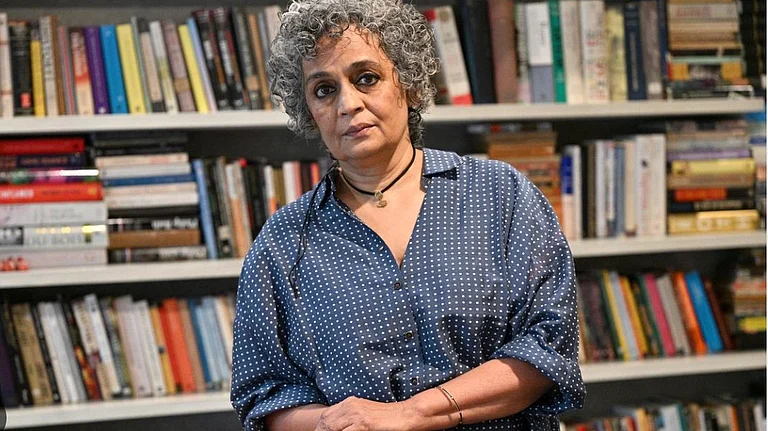Kapil Singh, whose brother has been admitted to a private hospital in Gurgaon for treatment of black fungus for more than a month, has paid a bill of Rs 20 lakh till now as hospitalization cost. However, out of that, Rs 12 lakh has been spent only to buy an antifungal injection known as Amphotericin B.
His brother was administered five vials of Amphotericin B and the price starts at Rs 6,500 per vial. The daily cost for this medicine comes around Rs 32,500.
“In fact, he needed 8 vials daily but since the medicine was in short supply, only five were given. Sometimes we had to buy the expensive ones of other brands that cost around Rs 8000 per vial also,” Singh, who is a farmer in Haryana, said.
He added, “Till now I have paid Rs 12 lakh only on this medicine and he needs it for one more week according to the doctors.”
Kumar begs that the government should take measures to bring down the cost of these essential medicines and make them more affordable. Doctors in many private hospitals say that the medical expense on Amphotericin B is a big burden on patients and this single medicine takes half of the cost of the complete medical treatment.
“As per treatment protocol, when the "black fungus" infects the nose, sinus, or palate, we have to administer a 5 mg dose per kilogram (kg) of body weight. For example, if a person is 60 kgs, he would require 300 mg of the dose. Each vial contains 50 mg of the drugs and costs between Rs 6500 to 8000,” Dr. Aditi Sinha, Consultant ENT Surgeon, Masina hospital, said.
Of late, the government has waived off the basic customs duty on imports of raw material needed to manufacture Amphotericin B but health experts say that it will have a minor impact on the cost.
“Why has the government woken up so late? This should have been done long back. Also, it is too little to provide help to thousands of patients who suffered due to chaos for which solely the government is responsible,” Rahul Bhargava, Head, Haematology Dept, Fortis Gurgaon, said.
He added, “The government has recently announced the capping of daycare and CT scan charges. I think it should have capped the charges of amphotericin B which is a life-saving medication for mucormycosis.”
Health experts also say that the government should have invoked the Drug Price Control Order (DPCO) for all the medicines considered essential for the treatment of Covid-19 and black fungus and fixed a price as it has been done in the case of tuberculosis (TB) drugs.
Dr. Ishwar Gilada, Infectious diseases expert, and President of, AIDS Society of India, says that if super stockists, stockists, and retailers are removed from the drug supply-chain for essential drugs and if they are directly supplied to the hospital, it can cost 50% cheaper.
“Not only Amphotericin B but even other Covid-19 drugs such as Remdesivir should have been brought under DPCO and their prices have been fixed with least profit margin keeping in mind the public interest. But it is really surprising that the government didn’t do that,” Gilada said.
He added, “Even the price of imported Covid-19 medicine such as Tocilizumab should have been capped but unfortunately during the second wave, it was not only sold on MRP but even black-marketed openly.”
Some healthcare professionals also allege that the government has allowed pharma companies to make a profit at the cost of patients suffering.
Dr. Sinha says that the Maharashtra government is treating all proven "Black Fungus" cases free of cost under the Mahatma Jyoti Rao Phule Jan Aarogya Yojana (MJPJAY) and a total of 130 plus hospitals in the state are currently treating these cases out of which a large percentage are government hospitals.
Experts say that if all other state governments take initiatives and treat patients at government cost, it will provide a huge relief to them.
Dr. Sinha requests the Maharashtra government to rope in more private specialists/super-specialists and to consider empanelling more private tertiary care hospitals in its war against Black Fungus.
“We already have the necessary infrastructure and medical/surgical expertise in place, and are more than equipped to handle such critical cases routinely following world-standard protocols,” she said.
She added, “A significant cost reduction and ease of access to Amphotericin B for private players will bring down patient bills and be a game-changer in the efficient and timely management of this deadly disease.”
Healthcare workers agree that breaking this cost barrier on an urgent basis will give wider access and more options to patients across the country seeking urgent specialist care.




















.jpg?w=200&auto=format%2Ccompress&fit=max)

_550_550.jpg?w=200&auto=format%2Ccompress&fit=max)



